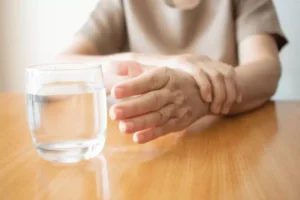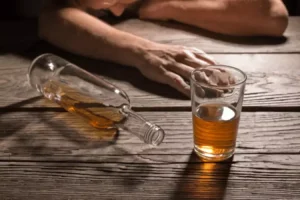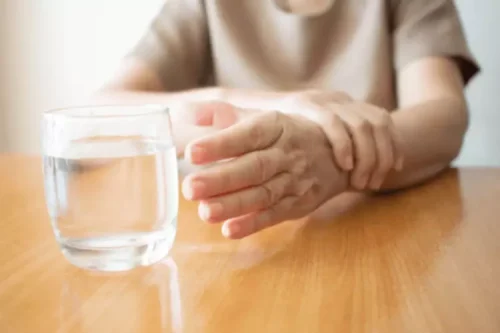
It allows individuals to externalize their internal struggles, giving form to abstract emotions and experiences. This externalization can provide a sense of distance and perspective, making it easier to process difficult feelings and experiences. ECHO Recovery is a community filled with people who once felt they had no direction. For many of us, artistic expression provided the key we needed to unlock new ways to improve our mental state. Recovery lasts a lifetime, and it can thus be a lengthy journey, but it’s a journey worth taking. Art is just one of the powerful tools you can use to improve your recovery journey and prepare to move forward into a life free from substance use.
Holistic Approaches to Addiction Treatment

She genuinely loves helping people on their journey to recovery and brings a friendly, down-to-earth vibe to every session. Art has existed for millennia, both as an essential form of communication and as a means of creative expression. People with SUD who have previously felt defeated and isolated from the world can reconnect with it once again through art. When we say distraction, we are referring to your ability to shift your focus from the urge to use substances to release your energy in another, healthier way.

LEARN MORE ABOUT ELEVATE’S APPROACH
By tapping into our innate creativity, we can unlock new pathways to understanding, growth, and recovery. Whether you’re struggling with addiction, mental health challenges, or simply seeking a deeper connection with yourself, art therapy offers a colorful path forward. Today, art therapy is recognized as a valuable tool in various therapeutic settings, including hospitals, schools, mental health clinics, and rehabilitation centers. It is used to address a wide range of issues, from anxiety and depression to trauma and addiction. Art therapy sessions involve activities such as drawing, painting, sculpting, and collage-making, allowing individuals to express themselves creatively and gain insights into their emotional states. Art therapy has become an invaluable tool in the mental health field, particularly in settings focused on drug rehab, sobriety, and addiction recovery.

The role of support groups for families of those in recovery
Art therapy is increasingly recognized as a potent tool in facilitating emotional healing during recovery from various conditions, including mental health challenges and substance abuse. By harnessing the creative process, art therapy provides a unique path to transformation and healing. In this article, we delve into the multifaceted benefits and applications of art therapy, exploring how it aids emotional recovery and the underlying mechanisms that make it so effective. Group art therapy sessions provide a supportive environment where individuals express themselves creatively while building social connections. These sessions foster a sense of community, enhance communication skills, and offer opportunities for peer support and feedback.

Traditional Art Therapy Techniques
This shift art therapy for addiction in perspective can be incredibly liberating and open up new avenues for self-discovery. Use art therapy to make something you can carry with you that will encourage you when you need it. Whether it’s a piece of jewelry, a keychain or clothing, you can add images, words or colors that remind you of how you want to feel. If you are interested in learning more about how art therapy can help you feel better about yourself, your life, and your relationships, call Ingrained Recovery’s admissions team today.
- Our study addressed three specific components of art and music therapy in addiction treatment.
- Rather than focus on the thought of relapsing, you can instead turn to your preferred art form.
- Contemporary artists like Nan Goldin have used their personal experiences with addiction to create haunting, yet beautiful works that challenge our perceptions of substance abuse.
- Its adoption in rehabilitation programs continues to grow, highlighting the importance of holistic approaches in treating substance use disorders.
- The act of creating art also serves as a distraction technique, helping individuals with substance use disorder divert their attention from cravings to engaging, productive activities.
Creativity for Addiction Recovery?
While some memories can be painful, photographs also capture milestones in our lives that are important but can be easy to forget. Whenever you’re feeling down or struggling with something, you can look back heroin addiction at these pictures and be reminded of your accomplishments. While art therapy can be deeply personal, some might find empowerment in sharing their journey. Counter this with a second collage visually depicting healthy coping mechanisms, like activities, support systems, or positive affirmations. Creating a collage focused on known triggers (people, places, feelings) can increase self-awareness.
Understanding the Role of Art Therapy in Addiction Recovery
Looking ahead, addiction art has the potential to play a significant role in shaping public health initiatives and policy decisions. Expression through art can help individuals communicate their feelings and take the next steps to recover. It’s known to be therapeutic and supportive in developing self-awareness and exploring emotions. A variety of art project ideas focus on the creative process that is beneficial to the recovery process. As we look to the future, the role of art therapy in addiction treatment is likely to continue expanding.
Draw Your Safe Place
- They provide alternative forms of expression, support healthy coping mechanisms, and promote overall well-being.
- Through addiction recovery art, psychological concerns like stress, anxiety, depression, or trauma can be brought to light, and the weight they put on our development can be lessened.
- Art therapy operates on the principle that creative expression fosters healing and mental well-being.
This therapeutic approach offers a creative outlet where patients can safely explore and articulate complex feelings tied to their addiction. Engaging in art-making serves as a visually expressive method for those who often struggle to communicate verbally about their emotions. Art therapy offers a powerful and creative approach to addiction treatment, providing a unique pathway to recovery. Imagine transforming your pain and struggles into a canvas of colors and shapes, turning what once was a source of distress into a masterpiece of healing. This innovative therapy goes beyond traditional methods by harnessing the therapeutic potential of creative expression. At its core, art therapy is a therapeutic technique rooted in the belief that creative expression can foster healing and mental well-being.







